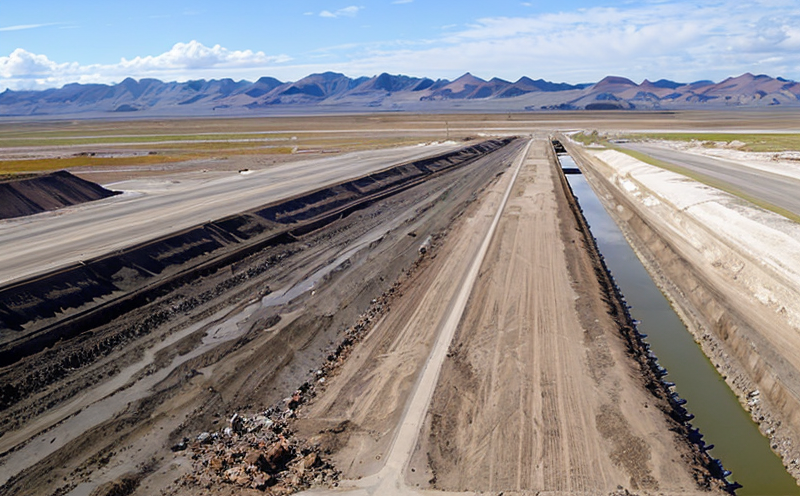DIN 18124 Consistency Limits of Tailings Soils Testing
The German Industrial Standard DIN 18124 is a critical methodology for determining the consistency limits of tailings soils. This standard plays an essential role in ensuring that mining operations comply with environmental and safety regulations, particularly in sectors where tailings management is crucial.
The primary aim of this test is to establish the upper and lower limits within which the soil remains stable under different moisture conditions. This information is vital for designing storage facilities, predicting potential risks associated with tailings dam failures, and ensuring operational safety during mining activities.
Given its importance in environmental management, DIN 18124 has been widely adopted by regulatory bodies across Europe and beyond. It provides a standardized approach to assess the stability of tailings soils, thereby facilitating consistent risk assessment practices among various stakeholders involved in mining operations.
The test procedure outlined in DIN 18124 involves several key steps:
- Sampling: Tailings samples are collected from different locations within the facility using appropriate equipment. The sample should represent the typical conditions found throughout the tailings storage area.
- Preparation: Once sampled, these materials undergo thorough preparation to ensure they are in a consistent state before testing begins.
- Determination of Consistency Limits: This involves measuring how much water can be added or removed from the soil without causing it to lose its structural integrity. The lower limit indicates when the material starts losing cohesion, while the upper limit shows at which point it becomes too wet for safe handling.
Understanding these limits helps mining companies make informed decisions about how much water can be added or removed from their tailings without risking instability. This knowledge is particularly important given the increasing pressure on industries to adopt more sustainable practices, especially when dealing with waste management.
Compliance with such standards ensures that operations meet both legal requirements and best practice guidelines recommended by international organizations like ISO (International Organization for Standardization).
Applied Standards
| Standard Number | Description |
|---|---|
| DIN 18124 | Consistency Limits of Tailings Soils Testing |
| ISO 17892-3 | Solid Waste Management — Determination of Water Content in Solid Wastes by Oven Drying Method |
| Standard Number | Description |
|---|---|
| DIN 18124-2 | Consistency Limits of Tailings Soils Testing — Particular Procedures for Specific Soil Types |
| EN 12370-6 | Geotechnical Testing Methods — Determination of Shear Strength and/or Angle of Shear Resistance of Soil or Rock Samples by Direct Shear Test |
Environmental and Sustainability Contributions
- Reduction in risk associated with tailings dam failures.
- Increased efficiency in resource utilization through better planning of waste management systems.
- Promotion of sustainable practices within the mining industry by providing a framework for consistent testing methods.
- Sustained compliance with international environmental regulations promoting safer, more responsible operations.
Competitive Advantage and Market Impact
By adhering to standards like DIN 18124, companies can gain significant competitive advantages in several ways:
- Licensing Compliance: Ensures that all operations comply with local and international environmental regulations. This is crucial for obtaining necessary licenses required by governments.
- Risk Mitigation: By accurately determining the consistency limits, firms can better predict potential risks associated with tailings management, thereby reducing unforeseen costs related to accidents or failures.
- Reputation Enhancement: Demonstrating a commitment to rigorous testing and adherence to recognized standards enhances an organization's reputation among stakeholders including customers, investors, and the public.
- Innovation Support: The detailed insights gained from consistent testing allow for continuous improvement in tailings management practices fostering innovation within the industry.
The implementation of DIN 18124 also opens up opportunities for collaboration with other sectors like civil engineering and environmental science, further enhancing a company's position in the market.





